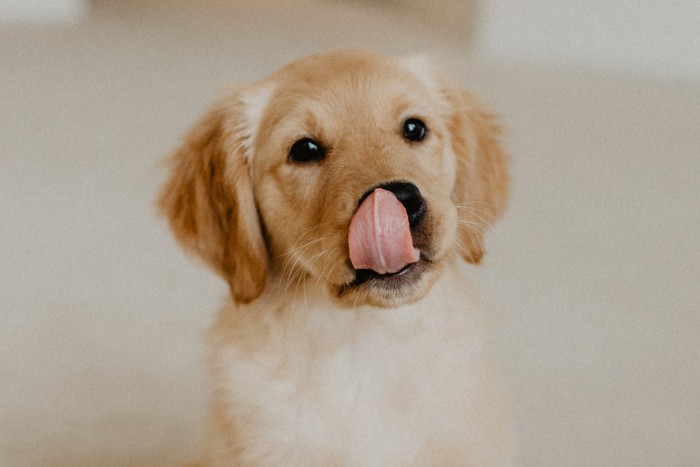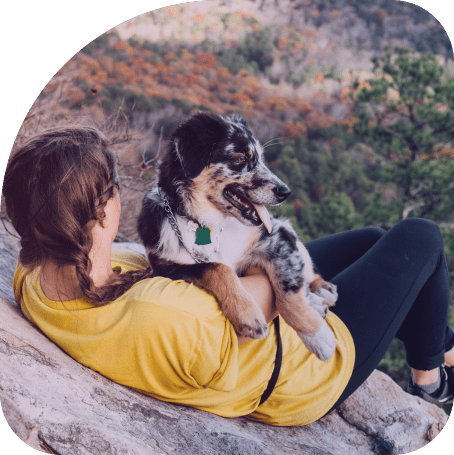Today, we’re going on an adventure to explore the fascinating stages of a puppy’s life. We’ll also discuss why it’s crucial to get your puppy from an educated and ethical breeder or a reputable rescue group. So, grab your favorite treat and let’s dive into these adorable stages together! 🐾
1. Neonatal Period (Birth to 12 Days Old): Warmth, Comfort, and Security
In this initial stage, puppies can barely see or hear, so they stay close to their littermates and mother for warmth, nourishment, and safety. Studies have shown that very careful and gentle handling by humans at this stage can contribute to a more confident dog later in life. So, don’t be shy – get those snuggles in!
2. Transitional Period (2-3 Weeks Old): Wobbly Steps and Curiosity
As puppies’ eyes open and their other senses develop, they begin to walk, wobble around, and explore their surroundings. It’s essential to introduce novel stimuli like new toys and textures during this stage. One-on-one time for body handling and teaching your puppy that humans are safe goes a long way in building trust.
3. Awareness Period (3-4 Weeks Old): A Whole New World
This period is marked by the rapid development of all senses, and puppies become aware of the world around them. It’s vital for their environment to remain stable and safe. Staying with their mother during this time is crucial for their sense of security and learning essential life skills.
4. The Big Move: Welcoming Your Puppy Home
At around 8 weeks old, puppies typically go to their new families. The next few months are critical, as they undergo significant changes and developments that will shape their personalities and behaviors for life. Understanding these stages is key to helping your puppy become a well-adjusted and happy adult dog. Let’s delve deeper into the importance of proper socialization during these formative months.
5. Fear Imprint Period (8-10 Weeks Old): Treading Carefully
During this time, traumatic events may have a lasting impact on a puppy’s life. Care should be taken to avoid scary experiences and ensure their travel and transition into your home are as smooth as possible. Your puppy will appreciate your gentle guidance!
6. Critical Socialization Period (3-12 Weeks Old): Building Social Skills
This stage is when the most rapid learning occurs and the greatest impact on social behavior is made through the experiences they have in this period. Calm, positive, and safe experiences with a variety of dogs, other animals, people, environments, and stimuli are essential to prevent behavioral and social challenges later in life.
It’s important to note that there’s conflicting information about whether it’s safe to socialize your puppy during this time, as they may not be fully vaccinated yet. However, many experts believe that it’s still critical to get your puppy out in the world during this stage. Safe observation and experiences can be achieved through your arms, watching from a car window, or only being on the ground in lower traffic areas. Prioritizing proper socialization is vital to your dog’s development and well-being. Dogs that do not start socializing until after all of their vaccinations (which is typically at 4 months) are often socially delayed and could struggle with social situations for the remainder of their life. The number of dogs rehomed, or euthanized due to behavioral issues due to lack of socialization in their formative months is much higher than those that are rehomed or euthanized due to sickness due to exposure before fully vaccinated. We follow the advice of the official AVSAB Position Statement on Puppy Socialization on this topic as well as our plethora of experience as dog trainers.
7. Juvenile Period (3-6 Months Old): Growing and Learning
During this stage, puppies learn bite inhibition from humans and other dogs, respect boundaries, play with other dogs, and develop paw-eye coordination. They also test boundaries with dogs and humans. This is the perfect time to start positive reinforcement obedience training and bond with your puppy!
8. Flight Instinct Period (4-8 Months Old): Exploring Independence
Teething occurs during this stage, with gums bleeding and teeth falling out or being swallowed. Your once clingy puppy will start to wander away and become more interested in their environment than in you. An ounce of prevention is worth a pound of cure at this point—addressing problem behaviors now is easier than in adulthood. Puberty begins during this time, so buckle up! Ensure you provide plenty of obedience training, keep your pup on a leash, and offer lots of attention through play, exercise, and training, as well as things to chew on to help them through this stage. Remember that patience, consistency, repetition, and good timing will be your keys to success.
9. Second Fear Period and Adolescence (6-14 Months Old): Facing New Challenges
Both adolescence and the second fear period overlap with the Flight Instinct Period. Your dog may suddenly become apprehensive about new things or timid with new people and places. Sexual maturation starts during this time (females may go into heat, males may begin to lift their leg to pee, puppy coats are replaced by adult coats, and baby shark teeth are replaced by larger, less sharp teeth but with a stronger jaw). Avoid overwhelming situations, be patient, and ensure your pup has plenty of positive interactions. Always do your best to end social interactions and obedience training on a high note!
10. Maturity (1-4 Years Old): Growing into Adulthood
Smaller dogs mature earlier, while larger dogs tend to mature later. If you missed any educational opportunities while your dog was growing up, it may become evident now (aggression and fears, for example). If you see any red flags for behavior issues, get help immediately. Most unwanted behaviors worsen over time, not improve. Ensure your dog earns their freedom, and be careful about setting them up for success in all situations.
Patience, Consistency, and Ongoing Training: Keys to Success
Throughout all stages of puppyhood, practicing patience and consistency will make the biggest difference in shaping your furry friend’s behavior and personality. Socialization and training should continue throughout your dog’s life. Keep exposing them to new experiences, people, and environments to ensure they remain adaptable and well-adjusted.
Seek Professional Help When Needed
If you notice any behavioral issues or red flags, don’t hesitate to consult a professional dog trainer or behaviorist. Early intervention can make a significant difference in resolving issues and maintaining a healthy, happy relationship with your dog.
Cherish the Journey: Celebrate Milestones and Make Memories
As your puppy grows and develops, remember to cherish the memories you create together and celebrate their milestones. After all, our dogs are not just pets; they’re beloved family members who bring joy, love, and companionship to our lives.
By following these guidelines and understanding your puppy’s developmental stages, you’ll be well on your way to raising a well-behaved, happy, and loving dog. Enjoy the journey and cherish the special bond you’ll create with your furry friend! 🐶💕



